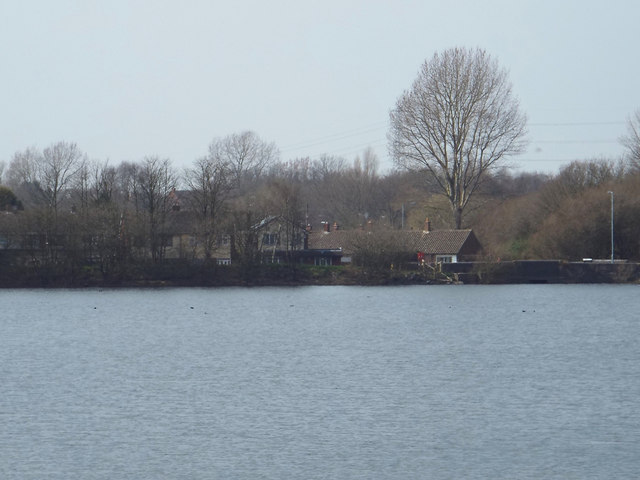SK0208 : Houses in Norton East overlooking Norton Lakeside Wildfowl Reserve
taken 9 years ago, near to Norton East, Staffordshire, England

*
HISTORY OF THE RESERVOIR
Originally the reservoir was known as Norton Pool, which was then crossed by an ancient salt way or pack horse track. On the south east side the dam was constructed in 1797 to create a feeder reservoir for the Wyrley and Essington Canal system. It is still used for that purpose today and opens into the Anglesey branch canal beyond the dam wall. The causeway was built in the 1870s as part of the mineral railway construction, linking the surrounding coal mines to the canal system. The trains took coal down the eastern side of Chasewater to the sidings in the Anglesey canal basin, where the former coal loading wharf still remains.
The majority of the land you see on the north and west side of Chasewater developed as a result of reclamation schemes during the 1970s. Prior to that time the main path on the western side was a raised causeway much higher than the surrounding land. The low lying areas were filled in and then subsequently covered with topsoil, seeded and planted with trees.
North of the railway line the area known as Norton Bog was actively mined until the 1950s. On the skyline beyond, the remains of Bleak House open cast coal mine can just be seen, where mining ceased as recently as 2000. Both sites were left scarred with shale heaps which have been reclaimed into the rolling hills you see today. These areas are now part of a major heathland restoration project.
HABITATS
Jeffrey’s Swag, to the northwest of the causeway, is a good bird refuge throughout the year. Birds to be spotted include coot, moorhen, mute swan, great crested grebe, mallard and goldeneye ducks. The Swag is important for nesting birds and it is vital this area remains undisturbed and that visitors stick to the paths alongside the railway and the embankment of the former railway line.
The lakeside plants, known as marginals, around Jeffrey’s Swag and the northern tip of the main reservoir provide nesting cover. These plants consist of yellow flag iris, amphibious bistort, bulrush and common club-rush.
Dragonflies and damselflies are frequently seen throughout the summer. Watch out for common darter, ruddy darter, common hawker, broad bodied chaser and the largest, the emperor dragonfly. Common blue damselfly, azure damselfly and blue-tailed damselfly can also be seen in good conditions.
Text of Lichfield District Council’s on-site interpretive sign.
